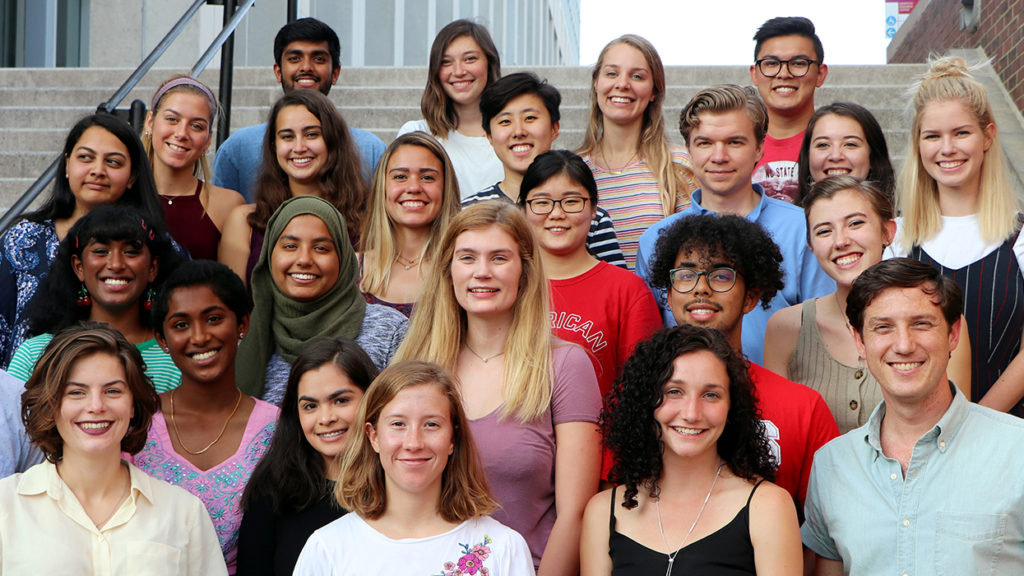Meet the 2020 NC State Sustainability Award Winners
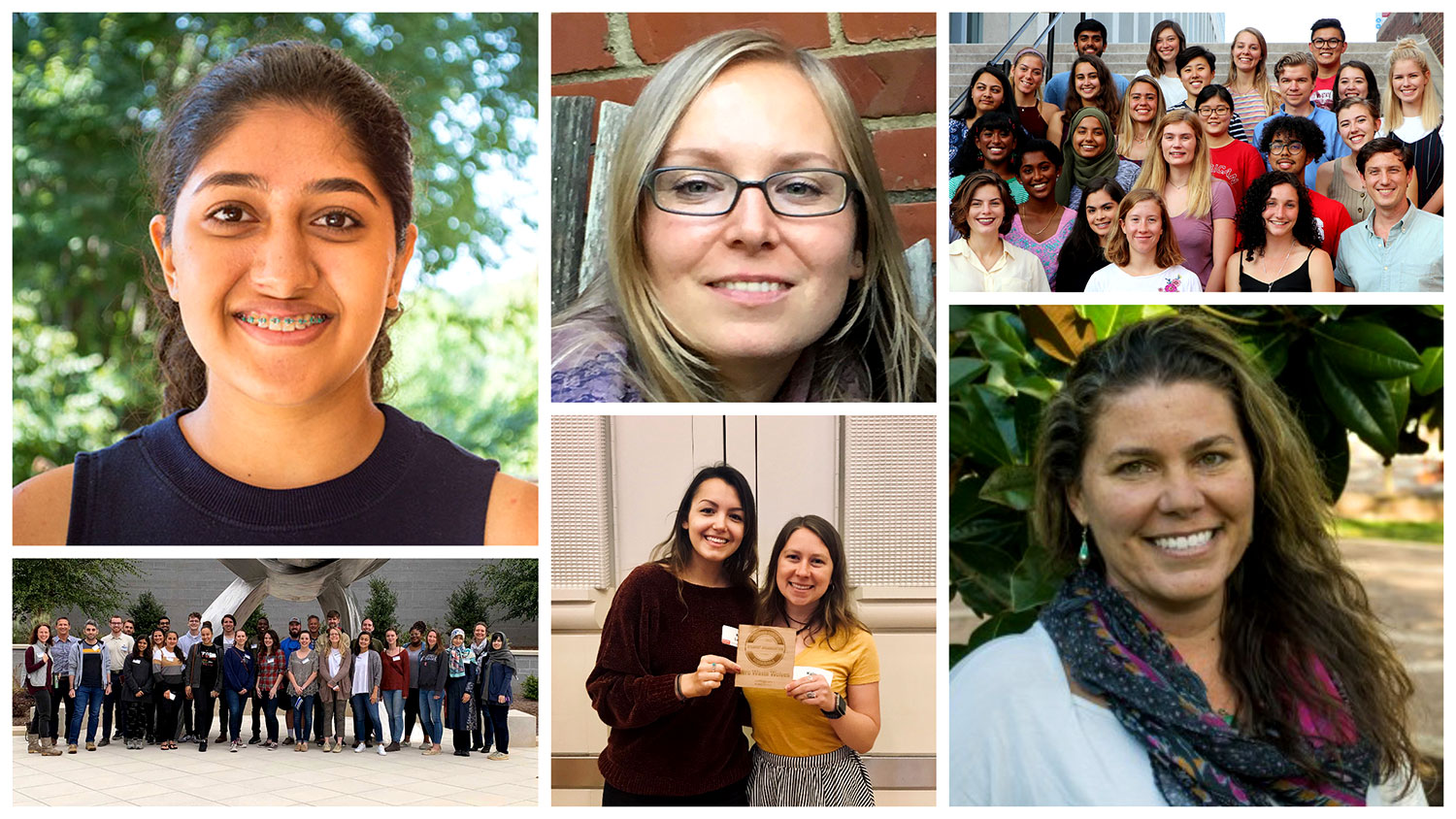
The NC State Sustainability Council has announced the winners of the 2020 NC State Sustainability Awards.
Sriya Gottumukkula (Student Recipient)
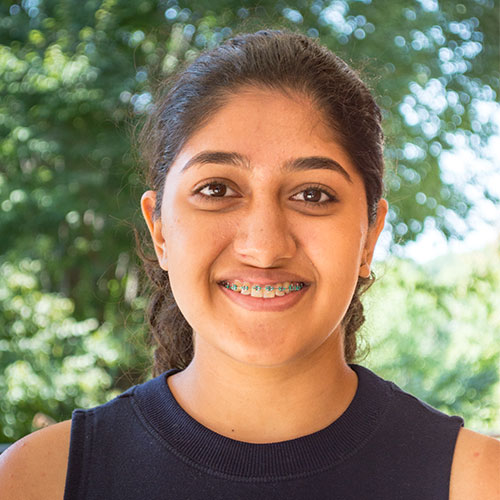
Sriya is an Environmental Sciences major in the College of Natural Resources. In her first year at NC State, Sriya participated in the Eco Village Living and Learning Village, as well as the College of Natural Resources’ Engaging Leaders program. Through this involvement, she constructed homes for Habitat for Humanity, assisted in hurricane recovery, maintained campus farms, promoted composting and recycling during sporting events, and designed a sustainable urban development seminar. She also served as an NC State Steward, where she planned residence hall conservation competitions and helped create a sustainability certification for students living on campus. She also conducted research in Zambia focused on poverty alleviation and sustainable energy. In India, she assessed climate mitigation actions of companies as part of an internship. In Australia, she served in conservation efforts including stream maintenance and habitat restoration. “Sriya inspires and motivates others toward sustainable actions within their own communities,” said her nominator.
Zero Waste Wolves (Student Organization Recipient)
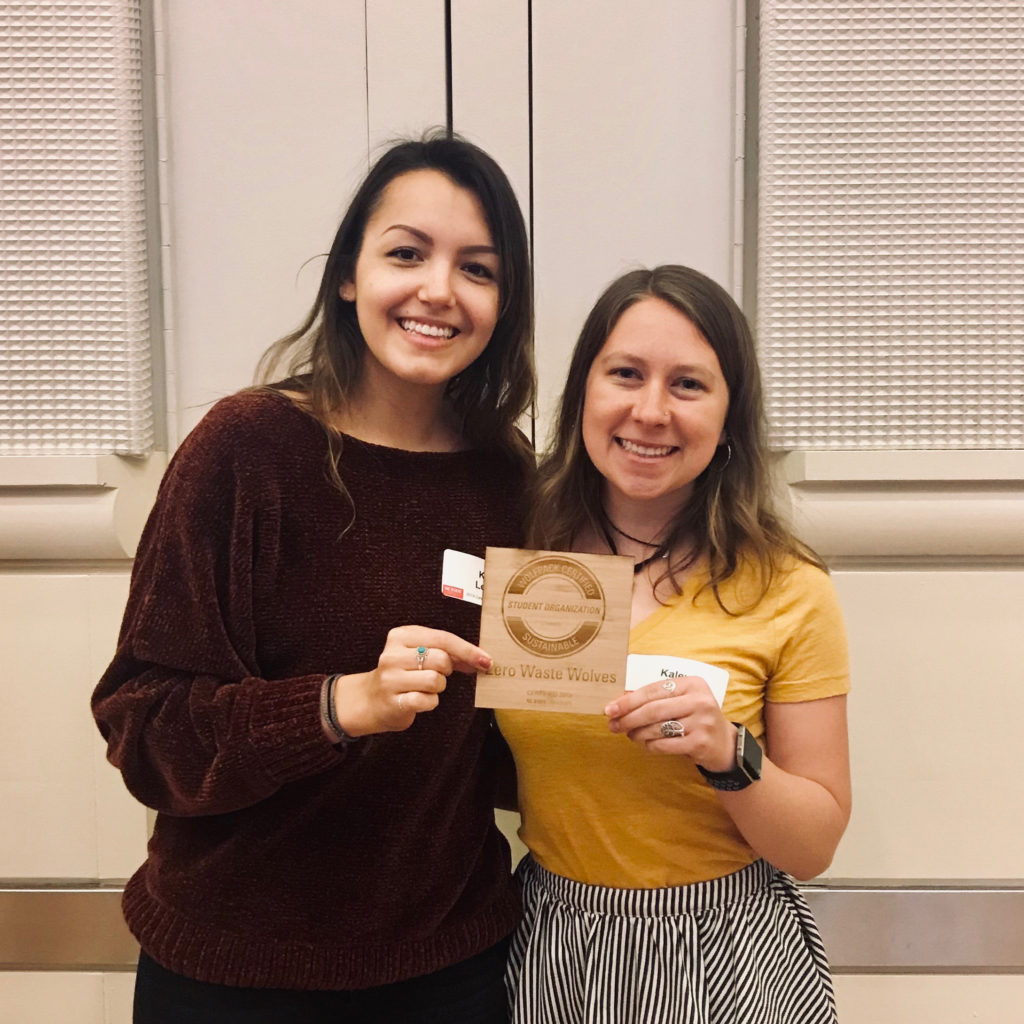
In less than three years, the Zero Waste Wolves student organization has made a large contribution to NC State’s efforts to reduce waste. In one of their first semesters, they worked with D.H. Hill Jr. Library to remove over 300 desk-sized trash bins and install convenience sites that included both landfill and recycling bins. They have also created, implemented and expanded a paper towel composting program for campus residence halls beginning with a pilot program in Bragaw and Metcalf Hall and have since expanded to 8 residence halls. Their most recent project included working with NC State Wellness and Recreation to begin recycling used and unwanted tennis balls, which were being sent to the landfill, to local schools and dog shelters in Raleigh. In addition to projects, they host educational workshops about zero waste. “The Zero Waste Wolves are making a difference on campus and in the world by inspiring zero waste lifestyles through their examples, workshops and positive messaging,” said the nominator.
Veronika Maynard Simon (Staff Recipient)

Veronika is a customer service specialist in NC State Transportation, where she has inspired a department-wide sustainability effort. In 2019, she developed a month-long sustainability challenge that helped employees create new sustainable habits. She collected information from participants and found a nearly 50% increase in environmentally-conscious actions. The department also consumed less energy in its building — Administrative Services I — during the challenge than in the preceding 12-month period. Since then, Veronika worked with Energy Management to have energy-saving, motion-sensing lights installed in strategic areas. She also regularly sends emails with sustainability reminders, helped the department switch to using compostable and reusable supplies, and started a coffee club to reduce the number of single-use coffee pods and cups utilized by her colleagues. “Veronika’s efforts have had a huge impact on this department; she has changed many members’ perceptions of sustainability which has, in turn, caused concrete changes in their lifestyles,” said her nominator.
LEED Lab (Innovation and Impact Recipient)
The School of Architecture’s LEED Lab course is a transdisciplinary immersion course that utilizes the built environment to educate and prepare students to become green building leaders and sustainability-focused citizens. Based on the U.S. Green Building Council’s LEED rating system, the course facilitates partnerships between student teams and NC State departments. Students work with facility professionals to understand the current impact of the building operations across water, site, energy, materials, transportation, and indoor environmental quality categories, ultimately providing strategy recommendations to improve the building’s environmental impacts. Over the six-year history of the course, 150 students have engaged the operations staff and occupants of Nelson Hall, Bragaw Hall, McKimmon Center, Talley Student Union, Wolf Ridge Apartments and Weisiger-Brown Athletics Building. As a result of the course, Talley Student Union was able to achieve its second LEED Certification in LEED for Operations and Maintenance. The course has been a model for other universities while also preparing students for green building careers. “The course gave us real life experience during our college careers that we wouldn’t have gained elsewhere,” said a former student.
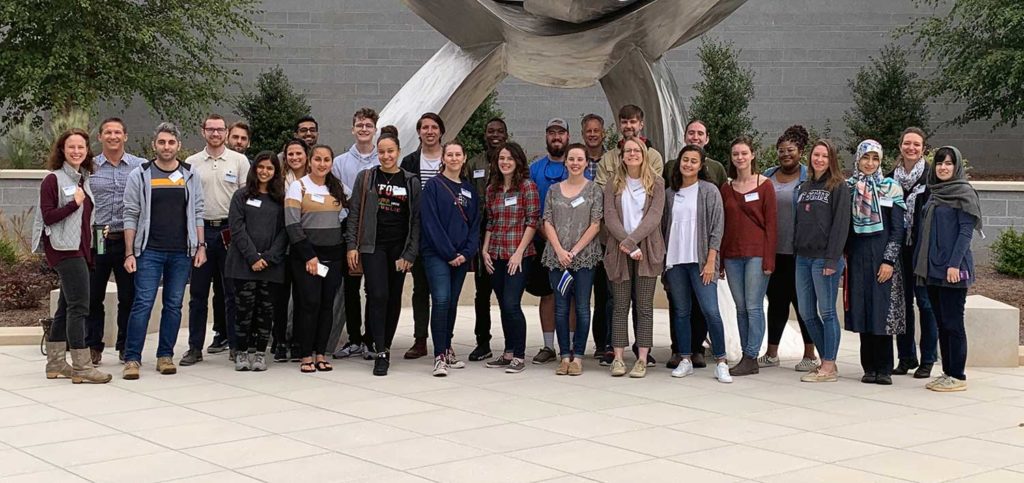
Michelle Shroeder-Moreno (Faculty Recipient)
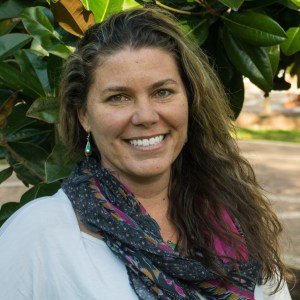
Michelle Shroeder-Moreno is a professor in the Department of Crop and Soil Sciences in the College of Agriculture and Life Sciences. Michelle both developed and currently leads NC State’s agroecology education, which focuses on the sustainability of agriculture and the food system. In response to the continued growth of student interest in agroecology programs, Michelle led the intensive effort to develop and gain approval for a new major in Agroecology and Sustainable Food Systems. Many years ago, she also developed a unique outdoor classroom: NC State’s Agroecology Education Farm. She serves as the director of the six-acre farm, where students and the community can learn about sustainable and organic horticulture crop production. The farm’s harvest returns to campus for use by NC State Dining. Michelle also advises the student-run Campus Farmers Market and leads service learning efforts with Interfaith Food Shuttle, school and community gardens, and in her classes. In 2013, she co-chaired NC State’s Earth Day, which focused on sustainable food systems. “Michelle has worked diligently throughout her time here at NC State to enhance not only the student, staff and faculty experience through the development and promotion of sustainable initiatives but also that of the surrounding community,” said her nominator.
Social Innovation Fellows (Department Award)
A year-long team-based learning experience, the Social Innovation Fellows enables NC State’s young social entrepreneurs and innovators to consider more fully their impact on humanity and the planet. Hosted by the NC State Institute for Nonprofits, the Fellows explore issues of ethics and sustainability at the intersection of social sector and responsible business practice. Individuals are grouped into teams and assigned to an innovative venture that addresses some of the most adverse sustainability-related challenges society faces today. “I have gained a completely new perspective in applications of sustainability,” said the nominator, who also participates in the program. “The Social Innovation Fellows has given me confidence in myself and humanity to rise against some of the world’s most difficult problems.”
